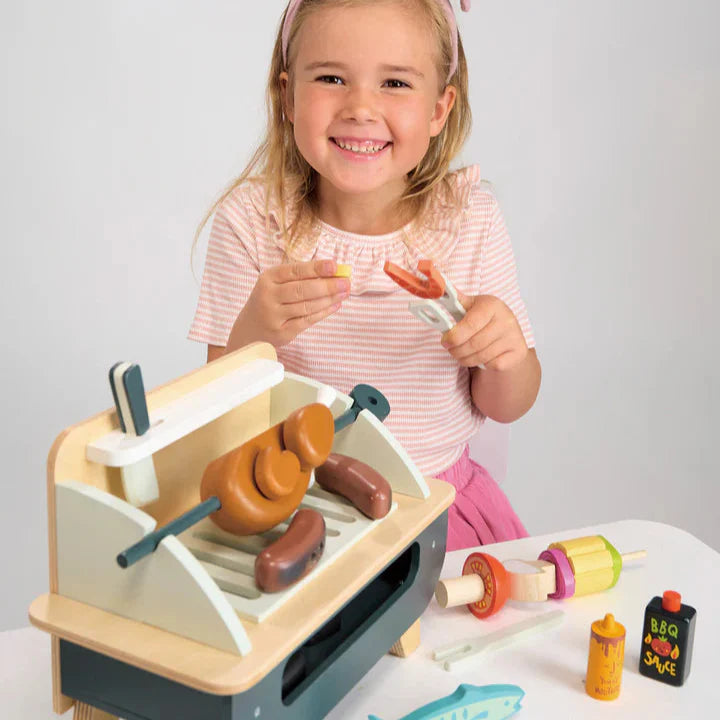What Is Montessori? A Beginner's Guide for Kiwi Parents
Share

As Kiwi parents, you may have heard about Montessori education—but what exactly does it mean, and how can you incorporate its principles at home? This guide introduces the foundational elements of Montessori philosophy, giving you practical insights into nurturing your child’s development.
What is Montessori?
Montessori is an educational method developed by Dr Maria Montessori over a century ago. At its heart, Montessori education respects each child’s natural desire to learn and explore, emphasising independence, respect, and a thoughtfully prepared environment.
“The child is both a hope and a promise for mankind.” – Maria Montessori
Montessori views children as capable, curious, and worthy of respect. Adults step back, allowing children the time and space to figure things out independently—while remaining nearby for support if needed.
The Prepared Environment
Montessori environments are carefully organised spaces that encourage exploration and autonomy. Here’s what makes them special:
- Accessibility: Furniture and resources are child-sized, allowing children to independently choose activities.
- Order: Clear organisation helps children develop a sense of structure and routine.
- Natural Materials: Toys and learning materials made from natural elements foster sensory exploration.
Creating a prepared environment at home could be as simple as dedicating a low shelf for accessible activities, ensuring your child can independently select and return materials.
Showing Respect to the Child
Montessori philosophy is deeply rooted in mutual respect. This means:
- Speaking to your child with kindness and clarity.
- Allowing your child space and time to complete activities independently.
- Recognising your child’s emotions and experiences as valid.
- Observing your child closely before stepping in—ask yourself, “Do they really need help, or can they figure this out on their own?”
Respectful interactions empower your child, fostering confidence, emotional intelligence, and positive self-esteem.
Instead of correcting children immediately, Montessori encourages gently modelling the skill or inviting them to try again. This helps maintain their confidence and supports natural learning.
Slowing Down
In a fast-paced world, Montessori encourages caregivers to slow down and observe children closely. Why?
- Observation: Taking time to notice your child’s interests helps tailor activities to their developmental needs.
- Mindfulness: Being fully present with your child models patience and attentive behaviour.
- Less Pressure: A slower pace means less anxiety, more meaningful interactions, and deeper learning.
By incorporating a slower, deliberate rhythm into daily life, both you and your child benefit from enriched learning experiences and stronger bonds.
The Absorbent Mind
Maria Montessori described the early years of childhood as a period of the "absorbent mind," where children effortlessly take in everything from their environment.
"The things he sees are not just remembered; they form part of his soul." – Maria Montessori
From birth to age six, children absorb language, social cues, cultural practices, and more simply by observing and interacting with their surroundings. Understanding this can help you intentionally shape a rich and positive learning environment for your child.
Sensitive Periods
Sensitive periods are specific windows during a child's early years when they are especially receptive to learning particular skills or concepts, such as language, order, or movement. Recognising these periods allows parents and caregivers to provide targeted support and opportunities that align with the child's natural development stages, maximising learning potential and enjoyment.
Bringing Montessori into Your Home
Adopting Montessori doesn't require radical changes—it's about simple shifts towards intentional parenting. Begin by observing your child’s interests, respecting their autonomy, and gradually refining their environment to support their natural curiosity and independence.
Final Thoughts
Montessori isn’t about perfection—and it’s not just about wooden toys or beautifully arranged shelves. At its heart, Montessori emphasises respecting children as individuals, allowing them to learn naturally, and helping them build confidence and independence. It's a gentle reminder that children are capable—often more capable than we realise.
“The greatest gifts we can give our children are the roots of responsibility and the wings of independence.” – Maria Montessori

